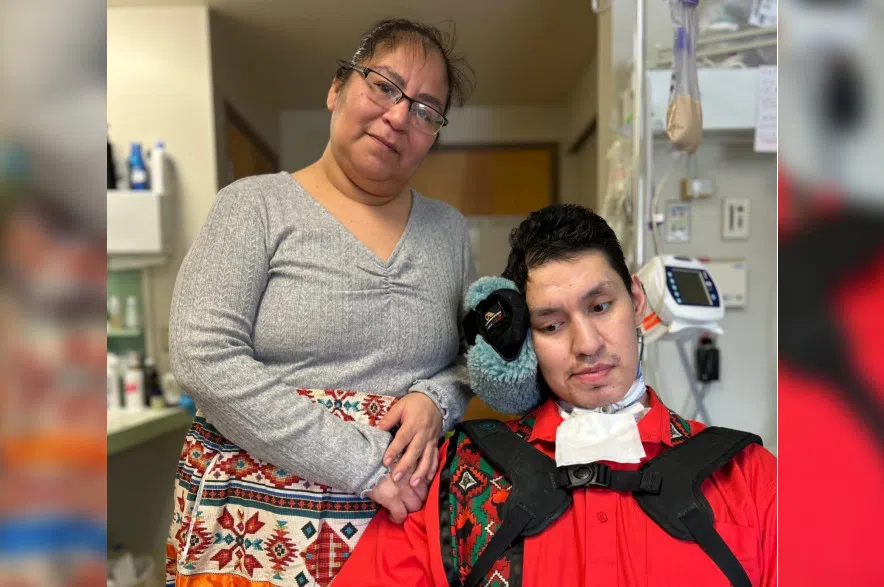Darnell Fineday suffered life-altering injuries when he was struck by an impaired driver at the intersection of Hart Road and 22nd Street last April.
Now, the 28-year-old from the Mosquito First Nation spends his days in Parkridge Centre, where he is wheelchair bound, requires a feeding tube and needs 24-hour care.
His mother, Charlene Fineday, has stepped into a caregiving role for her son.
“I’m still struggling,” she told reporters Wednesday at a news conference held by the Federation of Sovereign Indigenous Nations. “I’m still trying to find a way to help advocate for my son because I am my son’s voice now.”
She said she feels the driver’s sentence was unjust and wanted to see a 10-year sentence or at least jail time.
According to the FSIN, the offender was sentenced last month to less than two years “served within the community through house detention.” She also had her licence suspended for one year and must pay a $200 fine.
“There is no equity in justice for First Nation people,” FSIN Chief Bobby Cameron said in a news release.
“Currently there is an estimated 85 to 95 per cent of those incarcerated in Saskatchewan (that) are Indigenous and who have been incarcerated for far less,” he stated.
At the news conference, Cameron said he wants to see more First Nation members involved in the justice system.
“Nowadays we have many of our First Nations who are becoming lawyers (and) judges,” he said, noting that integrating them into the justice system will “offset or balance some of the injustices within the provincial justice system.”
Charlene Fineday said she wants to see more communication between victims and the court’s decisions. She hopes her son’s story can bring awareness to drunk driving tragedies.
Cameron said the mandatory alcohol screenings implemented by the Saskatchewan RCMP last week are a good start.
“I don’t ever want to see another mother go through what I’ve been through. It’s very, very hard,” Fineday said.







